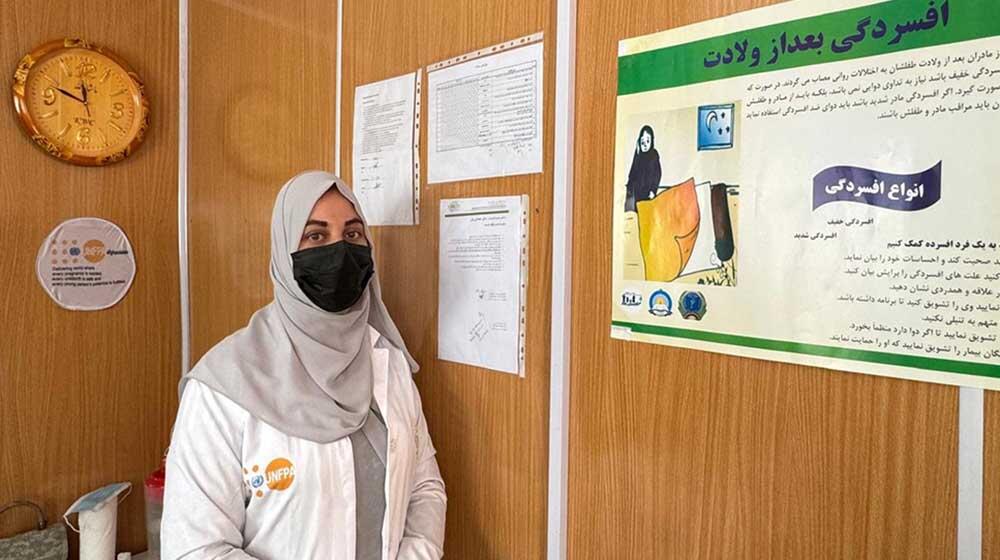Balkh, Afghanistan – In just one day, Sonika, a psychosocial counsellor, saw two female clients seeking psychosocial support services. Both women had one thing in common – they were experiencing post-partum depression exacerbated by problems induced by climate change.
This situation rings alarm bells for Sonika, who works with the UNFPA-supported Mobile Health Team (MHT) in Omerkhil Village of Char Bolak District, as external factors affect the psychological health of new mothers in her village.
One of Sonika’s clients, a 16-year-old girl, was referred by a midwife after childbirth. "She showed signs of trauma and developed depression after delivering her baby,” Sonika said. “She complained of sleeping difficulties, loss of appetite, and mood swings.”
The case is not new to Sonika, who said that most of her clients who are teenage mothers develop postpartum depression because they are not mentally ready for the new responsibility. Poverty and uncertainty about the future further compound their worries.
The counsellor said another client, a 25-year-old woman, was overwhelmed taking care of three kids and a newborn as her husband left to seek work outside Mazar Sharif City. Drought shattered the family's reliance on farming for sustenance, leaving them uncertain when the next meal will come.
With no job prospects in the village, the mother worked in wool production to help generate income for the family. This meant leaving her infant at home.
"It is sad that the climate is changing. It was strange that there was no snow in December,” Sonika shook her head as she looked out of the window from her clinic, gesturing denial and rejection of the current reality. “Most villagers could not rely on their farms anymore, and some places are inundated by flood water. These contribute to heightened stress and depression, including postpartum depression, among mothers.”
Balkh Province and the northern areas of Afghanistan are prone to river erosion and floods due to climate change that results in heavy rainfall, snowmelt from surrounding mountains, and poor infrastructure for water management.
According to statistics from UNFPA-supported MHTs, more people, particularly women from remote areas, are accessing the psychosocial support services provided by the MHTs. In early 2021, about 226,598 people accessed UNFPA-supported psychosocial support services in Afghanistan. By December 2023, the services have reached about 1.6 million people.
UNFPA has been working with its NGO partners to bring lifesaving maternal and reproductive health services closer to the community in hard-to-reach areas through its mobile clinics. UNFPA also considers the impact of climate change in its interventions,
Displacement caused by natural and human-made disasters, insecurity and limited access to lifesaving maternal and reproductive health services, including psychosocial support during pregnancy, exacerbate feelings of anxiety and depression among women. Economic hardship further intensifies these stressors. Sustained donor support for UNFPA's humanitarian interventions, including psychosocial support, is crucial.
With more women needing psychosocial support, Sonika is unwavering in her passion for her work, especially for the local women. “I am part of this community; I have to help my people, especially the women,” she said.
Text and photo by Stenly Hely Sajow, Humanitarian Coordinator-UNFPA Afghanistan


